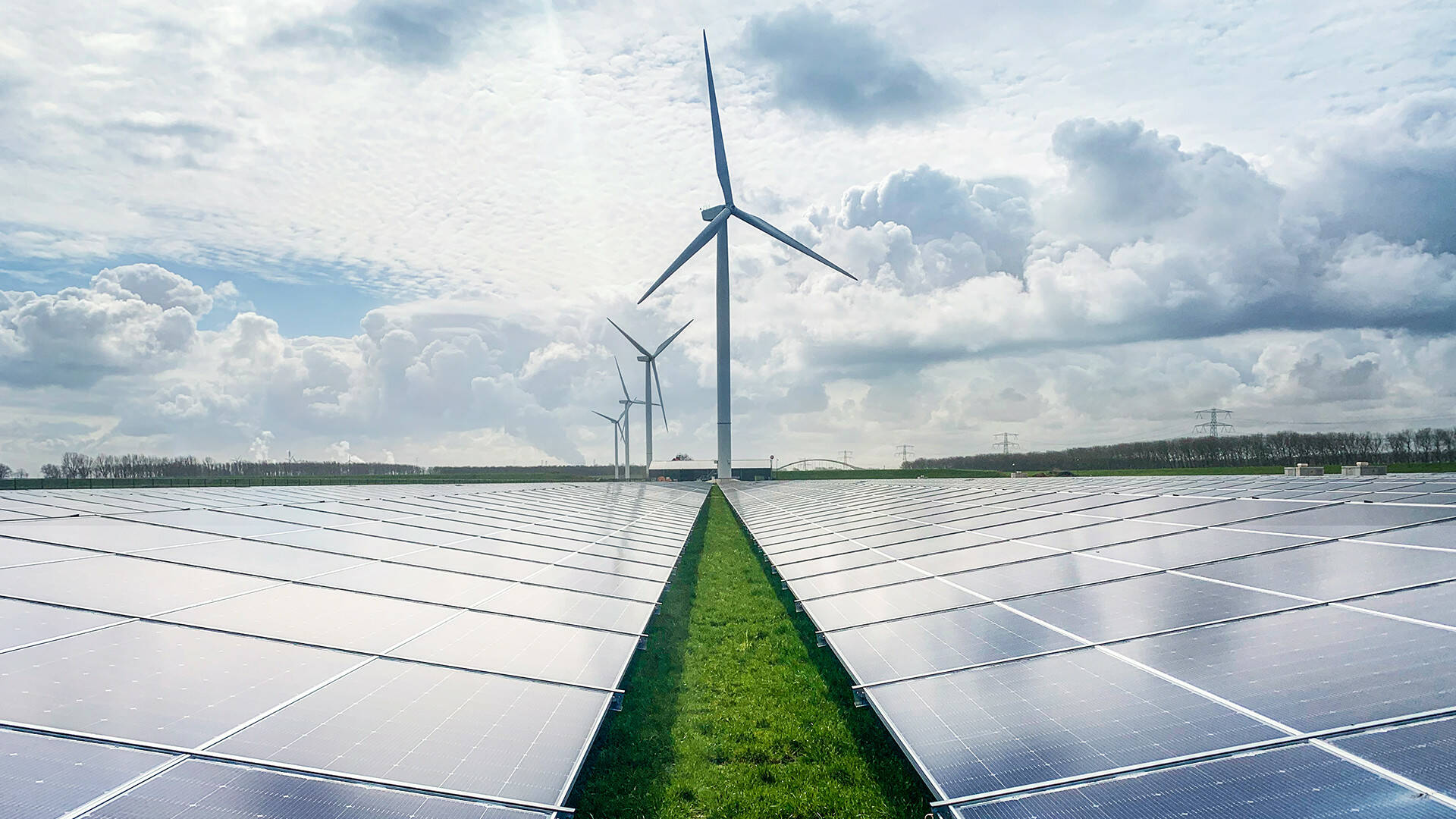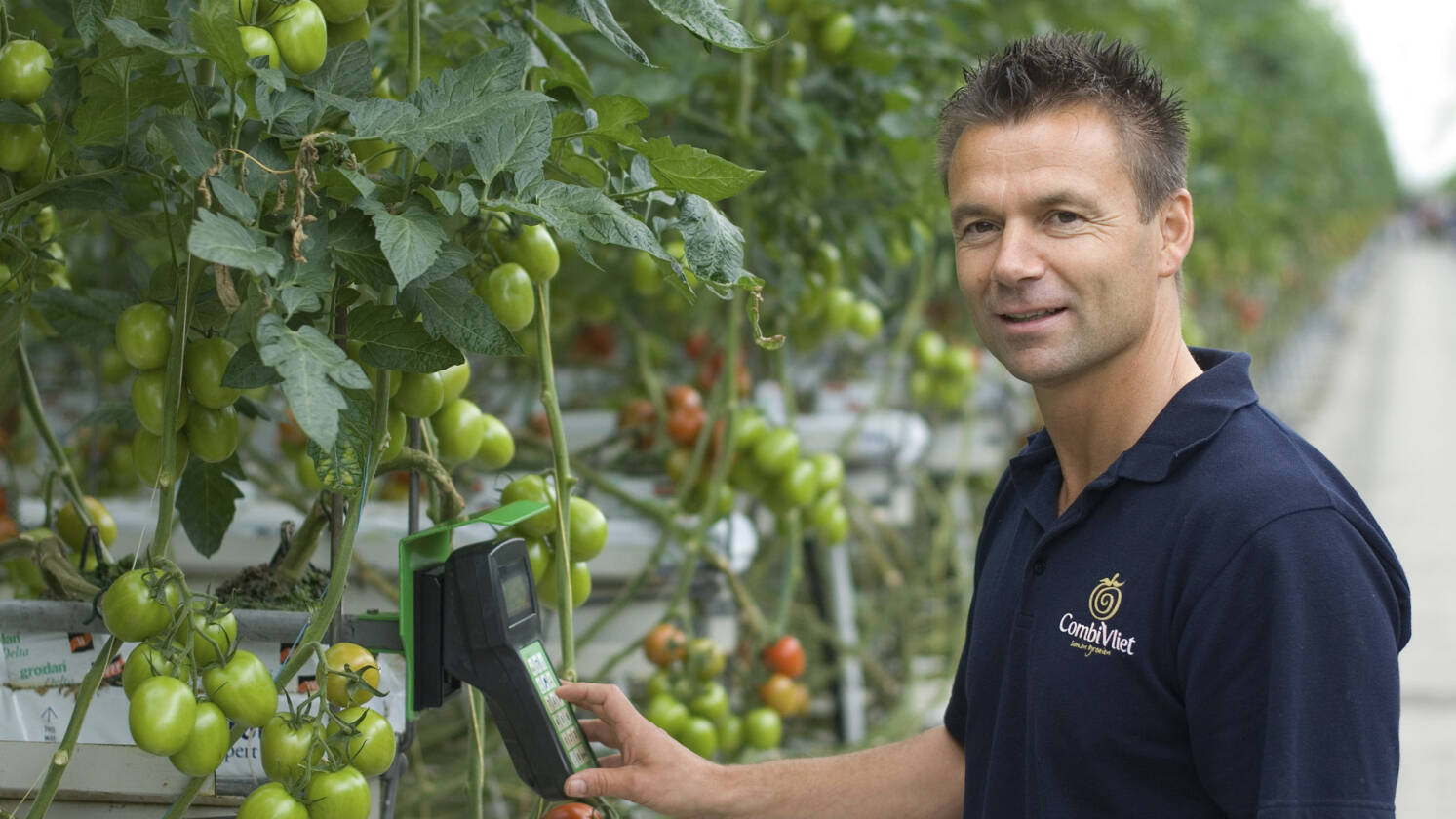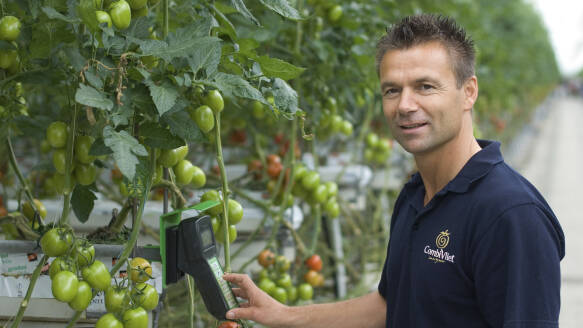
CombiVliet’s decentralised partnership offers sustainable tomato source
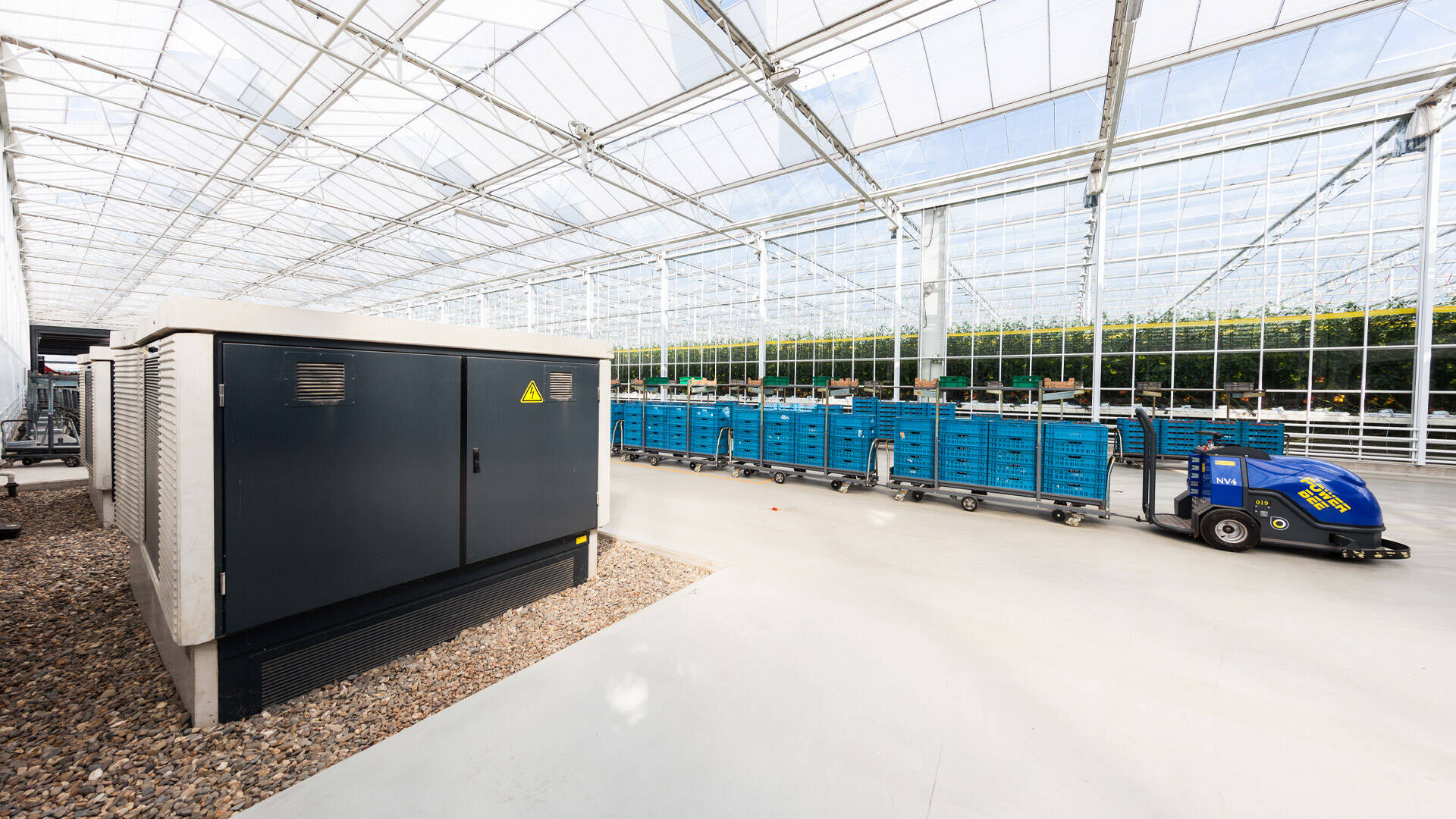


Go to next article

Go back
scroll down

Our relationship with Alfen goes back to 2004, when our first location was equipped with grow lights and CHPs. Seventeen years later and Alfen is still our partner for the supply and maintenance of our medium voltage installations and transformers. We are experts in, and passionate about, growing tomatoes and Alfen’s reliable expertise in medium voltage installations and transformers complements that and helps us to keep moving forward.
What is your relationship with Alfen and how does it add value?
The horticultural and particularly glasshouses/greenhouses are large energy consumers. How do you manage this?
Each of our locations has slightly different needs and solutions and there are considerations and limitations related to, for example, a building’s age and the optimum time financially to replace equipment. An unlit location obviously has different requirements than a location with grow lights. At one location we mainly use CHP while, at others, we use a mix of geothermal energy, biomass, and external heat.
At our Agriport A7 location in Middenmeer, we are one of 8 shareholders in Energie Combinatie Wieringermeer (ECW Energy), a private energy company which produces and stores energy and operates its own electricity, heat, high-pressure gas, CO2 and data networks. It was founded by all the horticultural businesses located at Agriport A7 to meet our shared energy needs through geothermal, biomass, solar and CHP. We work with another joint horticultural initiative for trading energy
and emissions rights – KasEnergy.
Can you tell us about your sustainability journey so far and how do you see the future?
We have been applying the triple bottom line, or 3 Ps business concept – people, planet, profit - for several years which is all about setting metrics for sustainability because there is a recognised connection between the health of the environment, people’s wellbeing and financial success. So we, for example, create healthy working conditions and development opportunities for our staff.
Where the planet is concerned, we use geothermal and biomass and have invested, for example, in an LED lighting trial which is more energy efficient than sodium lights but produces less heat so is backed up, if needed, by geothermal. We also recycle water; every drop of excess water flows back through the drain silo and is treated so it can go back to the plants. For profit, we ensure our external relationships are sustainable – both supplier and customer.
Where the future is concerned, there are plenty of opportunities but, of course, also threats. Take CO2 for example; it’s vital for plant growth and we release it during our gas combustion for heating and/or electricity generation but, if policy dictates we are no longer allowed to use gas, we lose this CO2 and the sustainable alternatives for electricity generation don’t deliver it. At that point, do we buy it in liquid form? If we do, who will deliver, how will they deliver it and will it require infrastructure?
A stable, reliable, and affordable electricity grid is also increasingly a challenge as demand and the volume of renewable energy production grows. Flexible production capacity, on the other hand, offers opportunities. If we put an Alfen Energy Storage System next to every windmill to balance the grid, then we’re going in the right direction!
Government policy and regulations are also really important. We are of the opinion that there should be a level playing field, not just for greenhouse horticulture companies nationally but also at European level. This is currently not the case; for example, for charges related to CO2 emissions and so sustainability is higher on the agenda at some companies than it is in others. In addition, we think it will be a missed opportunity if the industry is stimulated by government policy to store all CO2 in old gas fields underground when we could put it to good use in our greenhouses.
“ We are one of 8 horticultural shareholders of a private energy producer and network operator ”
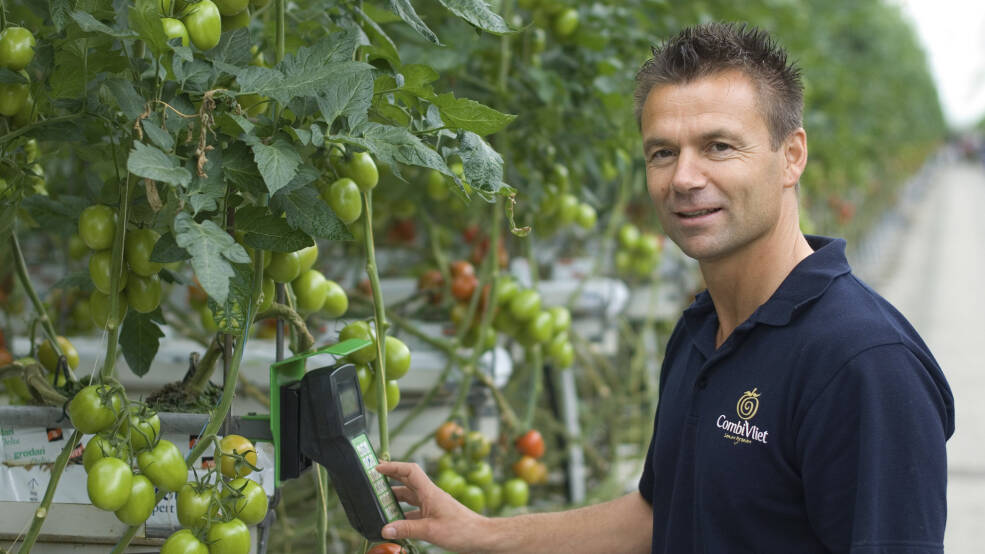
What are the challenges of year-round growing and how do you address them?
Our crops are annuals which means that we start again every year with a clean greenhouse and new young plants and so are out of production for a period of time. Year-round supply of all types of tomato in the right quantities is a challenge, as is controlling energy costs and these are obviously linked. We light the majority of our greenhouses in winter to combat the shortage of natural light because no light equals no tomatoes.
We also have several snack tomato greenhouses that are not lit and use a more traditional growing method. During the winter months, there is no production in them but, as this type of tomato grows well in the winter in Southern European and North African countries, we work with fellow growers at Harvest House who can deliver this.
The Harvest House growers’ partnership collaborates to optimise tomato production across the year. This helps
us to play to our individual strengths and keep the market delivery, and therefore price, stable which is, ultimately, better for our businesses than not collaborating and just producing as many tomatoes as we can.
As with all industries, data is increasingly important. We have an internal data specialist because good quality, reliable data helps us to optimise our business processes by monitoring as many things as possible both inside and outside the greenhouse. Having all of this data helps us to understand and, more importantly, predict what will happen so we can adapt quickly if the circumstances require it. To measure is to know.
Can you introduce yourself and CombiVliet please?
CombiVliet’s core activity is growing tasty and healthy tomatoes. Our philosophy is ‘Growing together,’ because good people and good collaboration are the key to doing this well and doing it sustainably. In fact, ‘collaboration’ is one of our four core values and refers to our sustainable relationships, where we work together internally and externally, with suppliers and partners, to grow in knowledge and skills as part of a whole sustainable supply chain concept – and ‘sustainability’ in its own right is another of our core values. The other two are ‘passion’ and ‘operational excellence’ which, again, are intrinsically linked and help to drive quality in a sustainable way.
One of CombiVliet’s most important collaborations is with Harvest House, a growers’ cooperative that handles the marketing and sales of all 70 members’ products. Whereas produce used to be sold through auctions, Harvest House now sells it to trading houses and service providers, who then supply the retail customers. As a result, we know who our customers are and can supply products tailored to their needs.
An interview with Rik Henskens,
Energy Manager at CombiVliet
Dutch family business, CombiVliet, is one of the largest tomato growers in Europe. Founded in the mid-1950s, it now has branches in Noord Holland, Zuid Holland and Zeeland, with a combined growing area of 128 hectares. Its cocktail, snack, coarse and medium course vine tomatoes are grown using the most modern and sustainable cultivation techniques and traded through the Dutch vegetable growers’ cooperative, Harvest House.
One of the challenges for any large-scale specialist grower is how to produce tomatoes all year round in a business that, by its very nature, is a high energy consumer. Rik Henskens is the Energy Manager at CombliVliet and so he and his colleagues have responsibility for all things energy, not least, how to manage it sustainably - a key theme for CombiVliet. We spoke to him about the technologies and solutions adopted by the business and where he sees the future of energy for the horticultural industry.
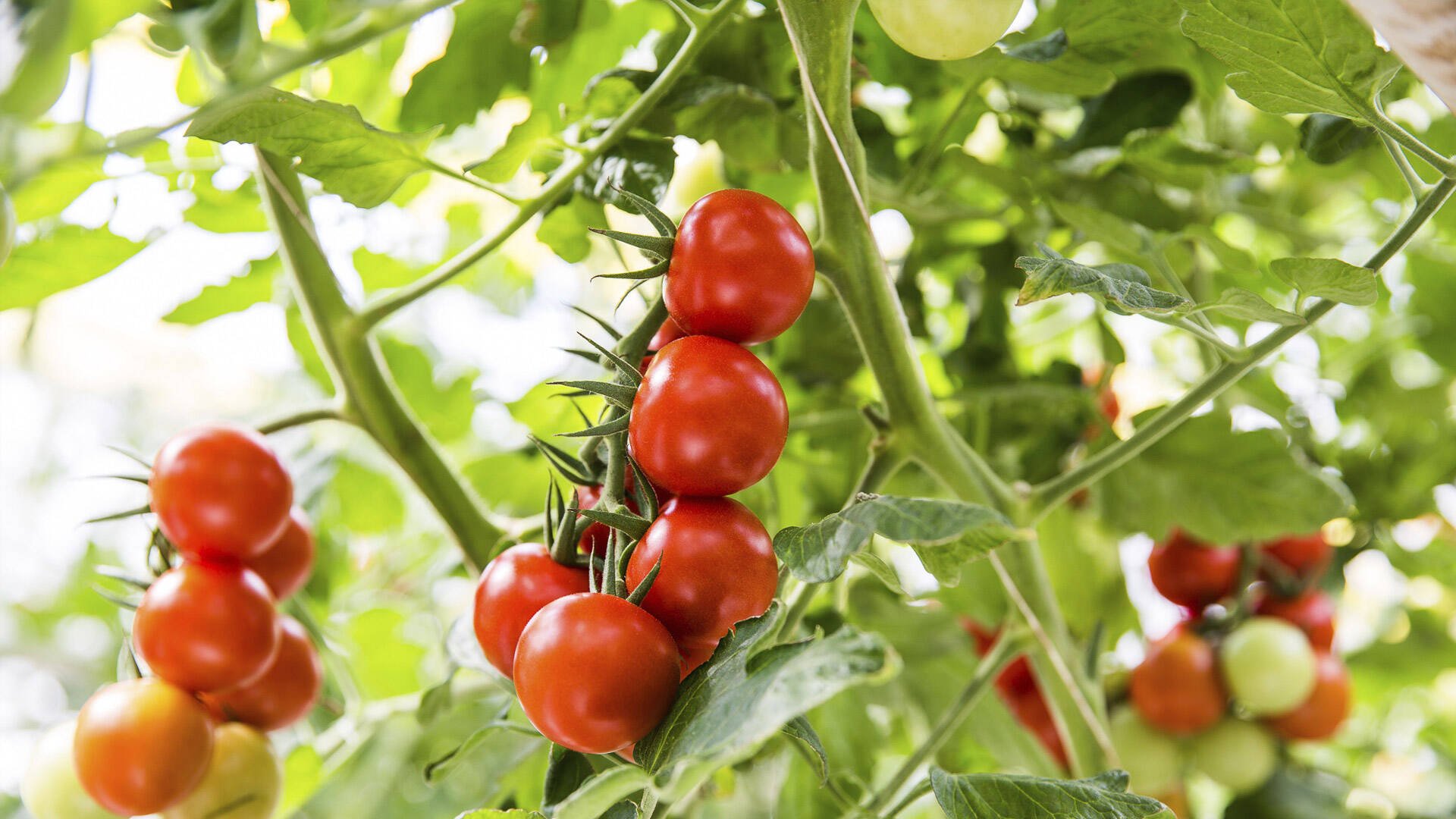

CombiVliet’s decentralised partnership offers sustainable tomato source



Go to next article

Go back
Our relationship with Alfen goes back to 2004, when our first location was equipped with grow lights and CHPs. Seventeen years later and Alfen is still our partner for the supply and maintenance of our medium voltage installations and transformers. We are experts in, and passionate about, growing tomatoes and Alfen’s reliable expertise in medium voltage installations and transformers complements that and helps us to keep moving forward.
What is your relationship with Alfen and how does it add value?

“ We are one of 8 horticultural shareholders of a private energy producer and network operator ”
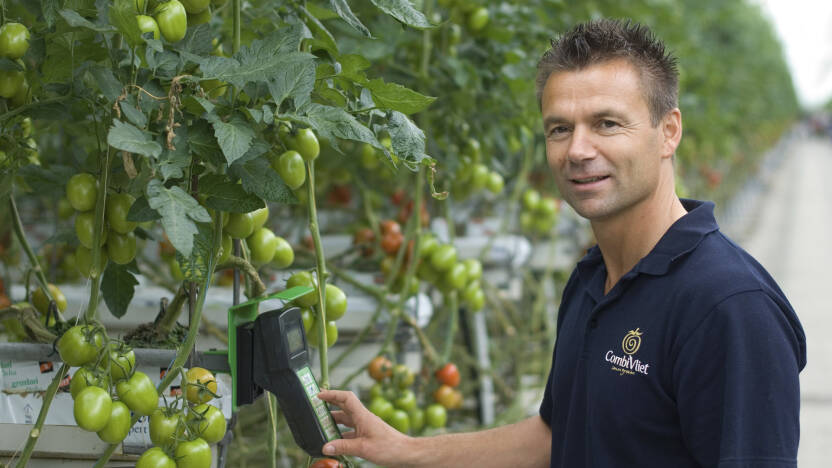
What are the challenges of year-round growing and how do you address them?
Our crops are annuals which means that we start again every year with a clean greenhouse and new young plants and so are out of production for a period of time. Year-round supply of all types of tomato in the right quantities is a challenge, as is controlling energy costs and these are obviously linked. We light the majority of our greenhouses in winter to combat the shortage of natural light because no light equals no tomatoes.
We also have several snack tomato greenhouses that are not lit and use a more traditional growing method. During the winter months, there is no production in them but, as this type of tomato grows well in the winter in Southern European and North African countries, we work with fellow growers at Harvest House who can deliver this.
The Harvest House growers’ partnership collaborates to optimise tomato production across the year. This helps
us to play to our individual strengths and keep the market delivery, and therefore price, stable which is, ultimately, better for our businesses than not collaborating and just producing as many tomatoes as we can.
As with all industries, data is increasingly important. We have an internal data specialist because good quality, reliable data helps us to optimise our business processes by monitoring as many things as possible both inside and outside the greenhouse. Having all of this data helps us to understand and, more importantly, predict what will happen so we can adapt quickly if the circumstances require it. To measure is to know.
Can you introduce yourself and CombiVliet please?
CombiVliet’s core activity is growing tasty and healthy tomatoes. Our philosophy is ‘Growing together,’ because good people and good collaboration are the key to doing this well and doing it sustainably. In fact, ‘collaboration’ is one of our four core values and refers to our sustainable relationships, where we work together internally and externally, with suppliers and partners, to grow in knowledge and skills as part of a whole sustainable supply chain concept – and ‘sustainability’ in its own right is another of our core values. The other two are ‘passion’ and ‘operational excellence’ which, again, are intrinsically linked and help to drive quality in a sustainable way.
One of CombiVliet’s most important collaborations is with Harvest House, a growers’ cooperative that handles the marketing and sales of all 70 members’ products. Whereas produce used to be sold through auctions, Harvest House now sells it to trading houses and service providers, who then supply the retail customers. As a result, we know who our customers are and can supply products tailored to their needs.
An interview with Rik Henskens,
Energy Manager at CombiVliet
Dutch family business, CombiVliet, is one of the largest tomato growers in Europe. Founded in the mid-1950s, it now has branches in Noord Holland, Zuid Holland and Zeeland, with a combined growing area of 128 hectares. Its cocktail, snack, coarse and medium course vine tomatoes are grown using the most modern and sustainable cultivation techniques and traded through the Dutch vegetable growers’ cooperative, Harvest House.
One of the challenges for any large-scale specialist grower is how to produce tomatoes all year round in a business that, by its very nature, is a high energy consumer. Rik Henskens is the Energy Manager at CombliVliet and so he and his colleagues have responsibility for all things energy, not least, how to manage it sustainably - a key theme for CombiVliet. We spoke to him about the technologies and solutions adopted by the business and where he sees the future of energy for the horticultural industry.




